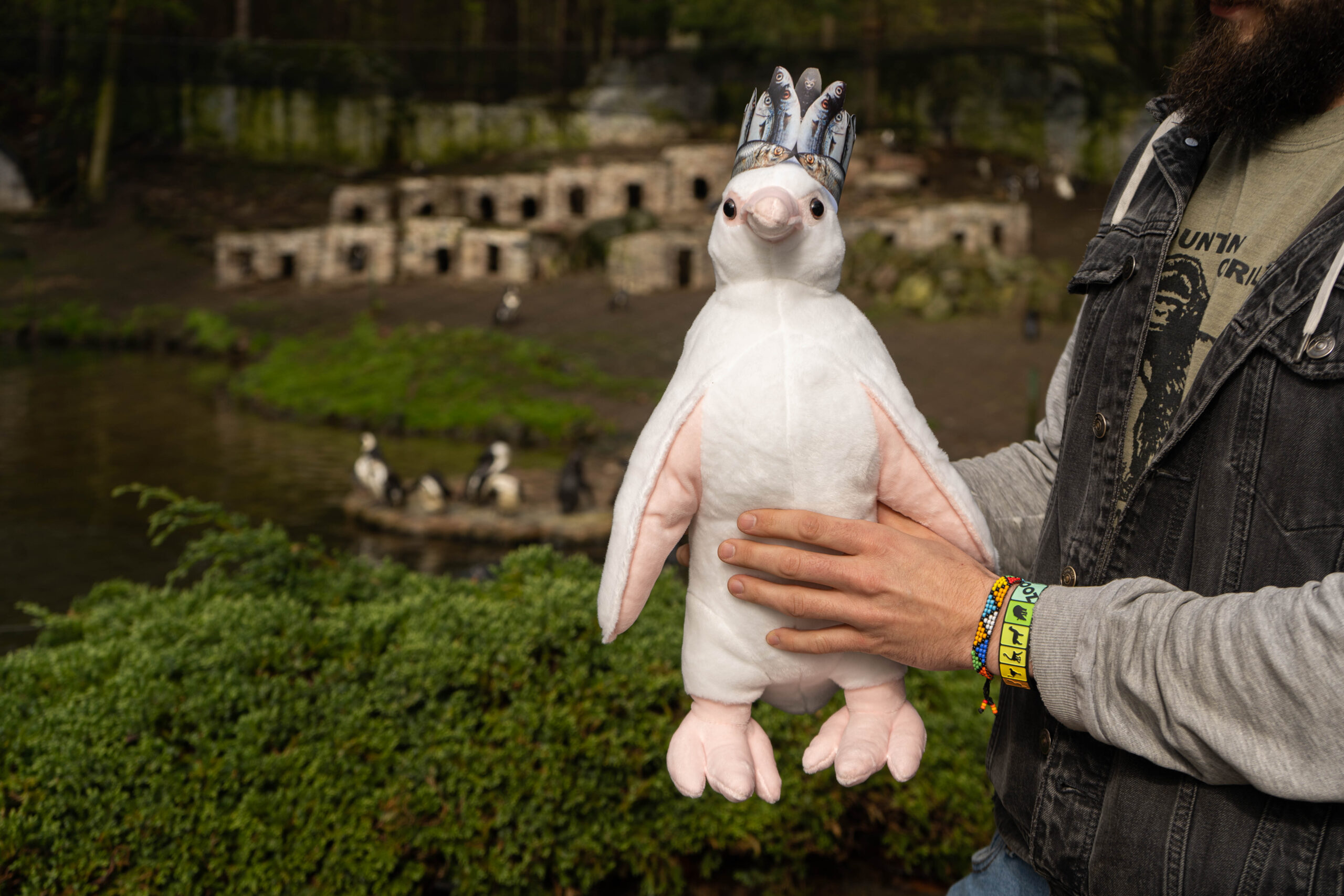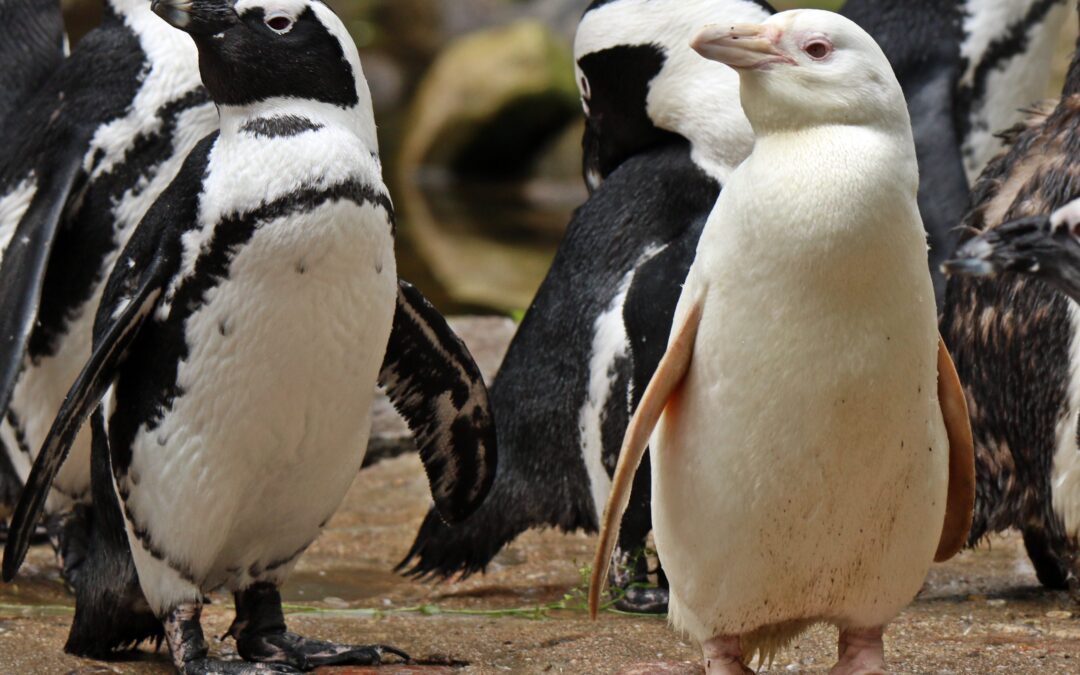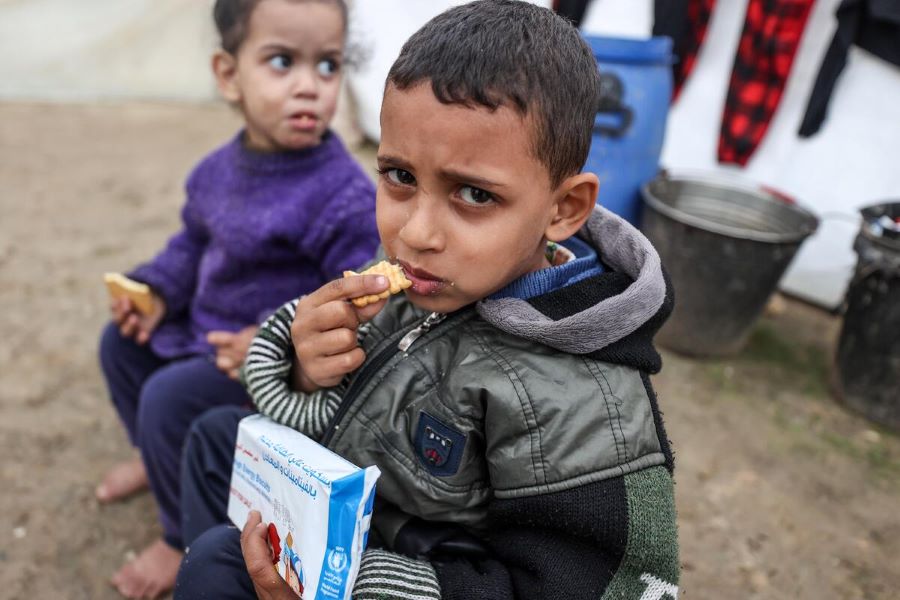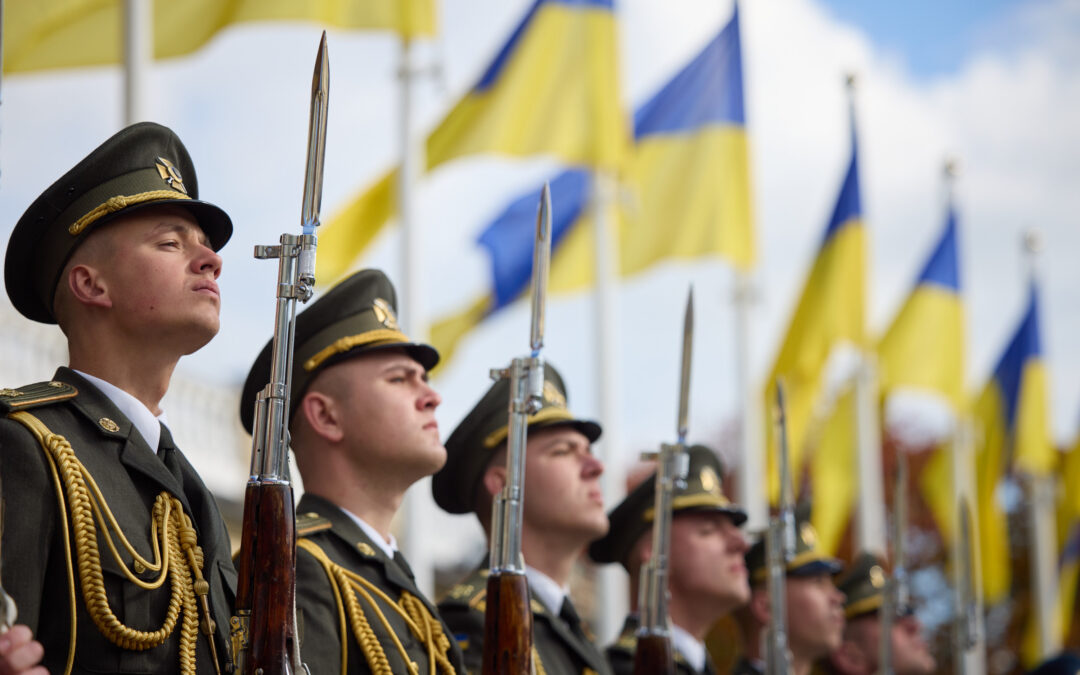An albino penguin born in a zoo in the Polish city of Gdańsk – the only one of its kind kept in captivity in the world – has been chosen as penguin of the year in an international contest.
Five-year-old female African penguin Kokosanka (pictured above) won almost 83% of public votes cast in the final round of March Of The Penguin Madness, an annual contest organised by Penguins International, an organisation committed to preserving and protecting penguins.
That placed her well ahead of her two US-based rivals: Pearl, an emperor penguin chick from SeaWorld in San Diego, and Littlefoot, a king penguin from the Kansas City Zoo & Aquarium.
As a reward for her success, Kokosanka (whose name refers in Polish to a kind of coconut macaroon) was presented by staff at her zoo with a cake made from herring caught in the nearby Baltic Sea, her favourite snack.
Kokosanka z @zoogdansk zwyciężyła w międzynarodowym konkursie @PenguinsIntl i została PINGWINEM ROKU! 👏🏻🏆 Dziękujemy za wszystkie głosy na naszą albinoskę – to dzięki Wam zdobyła ten tytuł 🫶🏻#gdansk #ilovegdn pic.twitter.com/988Bw4oopq
— Miasto Gdańsk (@gdansk) April 19, 2024
When Kokosanka hatched in Gdańsk in December 2018, her birth was initially kept a secret, zoo employee Paweł Ciesielski told Notes from Poland.
Her carers feared that her albinism – a condition in which cells cannot produce melanin, the substance responsible for colouration of skin, eyes and feathers – would mean she had poor health or that she would be rejected by her parents and other penguins.
Although Kokosanka was indeed initially rejected by her parents, with the support of her keepers she has grown into a healthy adult, well integrated with the other 84 penguins living at the zoo on Poland’s northern Baltic coast.
She has also become an informal face of Gdańsk Zoo, which offers Kokosanka-themed merchandise to its visitors.

Image credit: Alicja Ptak
Like many African penguins, a species that in the wild inhabits South Africa and Namibia, she has even found a long-term mate. After a debate at the zoo, it was decided to allow her to breed.
“In zoos that are certified…the aim is to keep the gene pool as healthy as possible, and albinism to some extent is a genetic anomaly, it is something that may not be desirable in nature,” said Ciesielski.
“She already had this partner last year, and he was already getting on with it, and there were attempts,” he added. “Maybe in the future, she will succeed.”
Last year, 17 penguin chicks hatched at Gdańsk zoo, giving it one of the largest broods in Europe, Ciesielski said.
The zoo believes that Kokosanka’s newfound international success is due to her unique appearance but also a campaign in support of her by a popular Polish social media account, Make Life Harder, which has over 1.5 million followers on Instagram.
The person behind the account, Jakobe Mansztajn, used it to encourage people to vote for Kokosanka, just as he did previously to help Polish trees win the European Tree of the Year contest for the last three years running.
“The profile has a large reach and its followers joined in the voting so eagerly that the voting page crashed repeatedly due to the high number of votes,” said Ciesielski.
A 200-year-old beech in southwest Poland has been named European Tree of the Year. It is the third time in a row that a Polish tree has won the content https://t.co/TeMYnPTSSL
— Notes from Poland 🇵🇱 (@notesfrompoland) March 22, 2024
African penguins are an endangered species, with around 20,000 pairs currently in the wild, down from 50,000 just two decades ago, says Ciesielski. According to Two Oceans Aquarium in Cape Town, the population will be functionally extinct by 2035.
Their population decline has been caused by a combination of offshore oil spills, food shortages due to intensive fishing and a changing climate, increased ship traffic, and egg harvesting.
Penguin reproduction is also hindered because people collect guano – accumulated excrement of seabirds or bats used by them to nest – for use as fertiliser. As a result, African penguins have become more exposed to extreme weather events, according to the Two Oceans Aquarium.
Two Bali starling chicks – a critically endangered species less than 100 of which remain in the wild – have hatched at Gdańsk Zoo in Poland https://t.co/KKmCD843iQ
— Notes from Poland 🇵🇱 (@notesfrompoland) August 10, 2022

Notes from Poland is run by a small editorial team and published by an independent, non-profit foundation that is funded through donations from our readers. We cannot do what we do without your support.
Main image credit: Gdańsk Zoo

Alicja Ptak is senior editor at Notes from Poland and a multimedia journalist. She previously worked for Reuters.



















